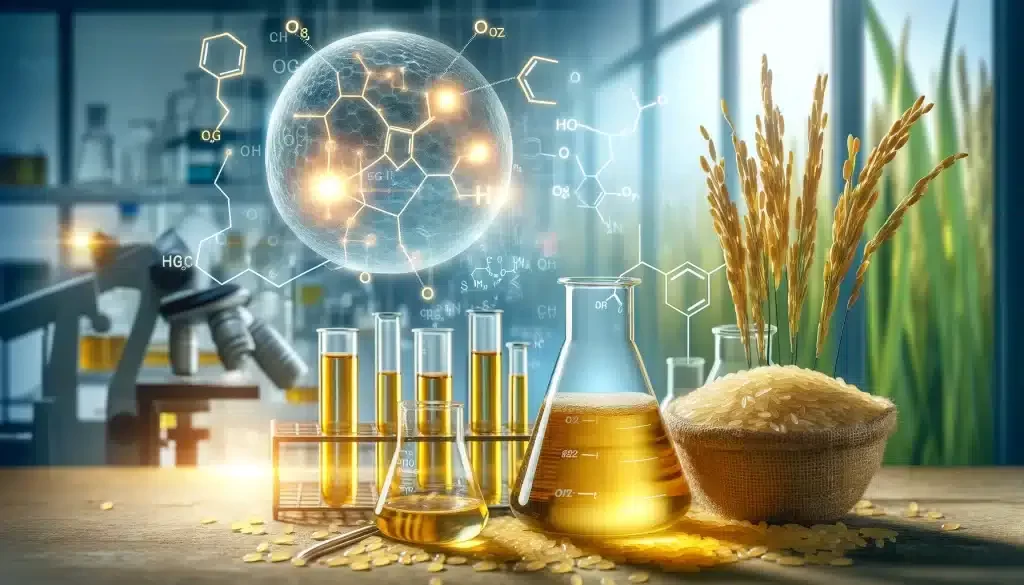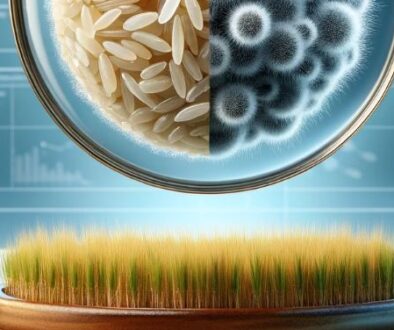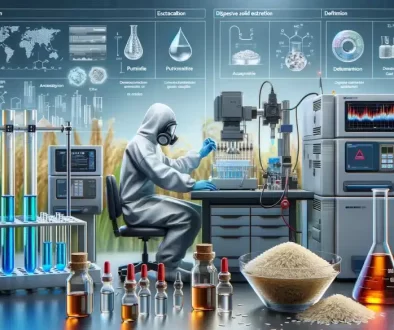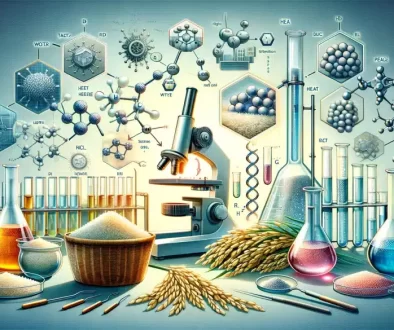Production, characterization and enzymatic preparation methods of rice polypeptides
Explore enzymatic rice peptide production methods, optimization techniques, and kinetic studies to enhance yield and quality in peptide industry advancements.
Key words: Rice protein, Rice peptide, Decolorization, Enzymatic hydrolysis, Debittering
Introduction
The introductory section highlights the importance of controlling the hydrolysis process in peptide production to ensure high-quality peptides with minimal free amino acids and large molecule peptides. It stresses the need for new methods to simultaneously measure peptide content, free amino acid content, hydrolysis degree (DH), and peptide molecular weight distribution for better control over the enzymatic hydrolysis process and peptide product quality.
Peptide Indicator Measurement Methods
This part discusses the current techniques for determining amino acid content, such as Reverse Phase Liquid Chromatography (RPLC), ion exchange chromatography, gas chromatography, and capillary electrophoresis, with pre-column derivatization high-performance liquid chromatography being the most widely used due to its short analysis time and high sensitivity. It also covers methods for measuring the hydrolysis degree (DH) and peptide molecular weight distribution, highlighting the need for a new method that can characterize all these aspects simultaneously for better production control.
Peptide Preparation Methods
The document outlines various peptide preparation methods, including chemical, enzymatic, chemical synthesis, microbial fermentation, and bioengineering methods. It focuses on chemical hydrolysis and enzymatic hydrolysis methods, discussing their advantages and disadvantages. Chemical methods are simple and cost-effective but pose safety, nutritional, and sensory quality concerns. Enzymatic hydrolysis, in contrast, offers mild reaction conditions, controlled hydrolysis, and preserves nutritional values, making it increasingly preferred in the food industry.
Enzymatic Preparation Method for Peptides
This section delves into enzyme-based methods for producing rice peptides, highlighting the process’s mild and controllable conditions, safety, and scalability. It details the selection of proteases based on substrate specificity, reaction conditions, and the economic considerations of enzymatic hydrolysis. The advantages of enzymatic over chemical methods are emphasized, alongside examples of peptide production outcomes using various proteases.
Kinetic Studies of Enzymatic Peptide Production
It explores the kinetic studies of enzymatic reactions in peptide production, discussing how different factors like substrate concentration, enzyme concentration, inhibitors, activators, pH, and temperature affect the reaction rate. The section aims to understand the mechanism of enzyme-substrate interaction and optimize conditions for maximum catalytic efficiency, providing theoretical and practical significance for industrial optimization.
Research Objectives and Significance
This part articulates the goal of enhancing rice peptide yield and quality, reducing bitterness, and establishing high-quality rice peptides. It emphasizes the importance of technological advancements in enzyme de-coloring, detection methods, extraction kinetics, and improving yield and flavor. The potential impact on the development and industrial application of rice peptides is discussed, highlighting the significance of this research in advancing the processing and utilization of rice protein resources in China.
Main Research Content
The article outlines the primary research areas, including developing a new method for simultaneous measurement of peptide indicators, studying the de-coloring methods for alkaline protease, investigating the effects of enzymatic hydrolysis conditions on rice peptide yield, studying the factors affecting yield during enzymatic hydrolysis, researching the debittering effects of prolyl endopeptidase on rice peptides, and establishing a small-scale preparation process for rice peptides.
This English version aims to capture the essence of the original Chinese article, summarizing the comprehensive research on the enzymatic production of peptides, specifically rice peptides, and highlighting the innovative approaches to improving peptide yield and quality.
For more further detailed information of this research, feel free to contact our team for asssistance.
Original authors: Lu Zhijia, Lu Fuping (Tianjin University of Science and Technology, Tianjin, 300457)
About ETprotein:
ETprotein, a reputable rice protein Chinese factory manufacturer and supplier, is renowned for producing, stocking, exporting, and delivering the highest quality organic bulk vegan protein and plant proteins. They include Organic rice protein, clear rice protein, pea protein, clear pea protein, pumpkin seed protein, sunflower seed protein, mung bean protein, etc. Our offerings, characterized by a neutral taste, non-GMO, allergen-free attributes, cater to a diverse range of industries. We serve nutraceutical, pharmaceutical, cosmeceutical, veterinary, as well as food and beverage finished product distributors, traders, and manufacturers across Europe, USA, Canada, Australia, Thailand, Japan, Korea, Brazil, and Chile, among others.
Our specialization includes exporting and delivering tailor-made protein powder and finished nutritional supplements. Our extensive product range covers sectors like Food and Beverage, Sports Nutrition, Weight Management, Dietary Supplements, Health and Wellness Products, and Infant Formula, ensuring comprehensive solutions to meet all your protein needs.
As a trusted company by leading global food and beverage brands and Fortune 500 companies, ETprotein reinforces China’s reputation in the global arena. For more information or to sample our products, please contact us and email sales(at)ETprotein.com today.












